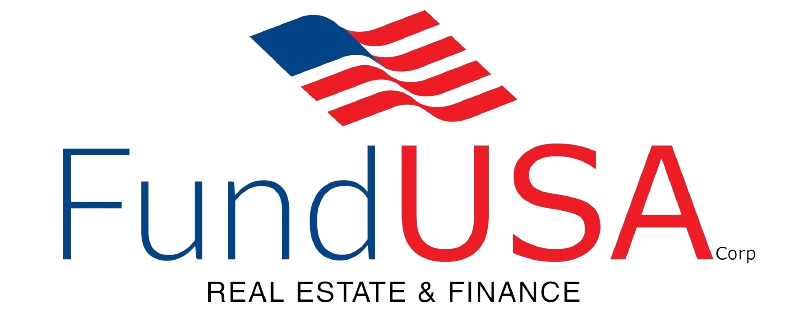Introduction to Real Estate Mortgages
Real estate mortgages play a crucial role in the acquisition of properties, serving as a financial tool that allows home buyers to afford residential, commercial, and investment properties without needing to provide the entire purchase price upfront. These loans typically involve an agreement where the property serves as collateral for the borrowed amount, thus mitigating risk for lenders while facilitating property ownership for borrowers.
There are several types of mortgages available in the market today, tailored to meet the diverse needs of home buyers. Among the most common are conventional loans, FHA loans, and VA loans. Conventional loans are not insured by the government and often require a higher credit score and a larger down payment. Conversely, FHA loans are government-backed mortgages aimed at helping first-time home buyers or those with less-than-perfect credit by allowing smaller down payments and flexible credit requirements. Each type of loan comes with its unique set of benefits and drawbacks, influencing the decision-making process for home buyers.
In addition to residential mortgages, which cater primarily to home buyers seeking a place to live, commercial loans are designed for businesses looking to acquire or refinance property used for commercial purposes. Investment loans are another category, targeting real estate investors who wish to purchase properties to generate rental income or to hold for capital appreciation. Understanding the nuances between these categories of real estate mortgages is essential for home buyers as it shapes their financing options, potential returns on investment, and overall risk profiles.
As we delve deeper into this guide, we will examine the features of each mortgage type, the qualification criteria, and important considerations that home buyers should keep in mind when navigating the real estate market.
Residential Mortgages Explained
Residential mortgages are essential financial instruments for home buyers, allowing individuals to purchase residential properties through borrowed funds. There are several types of residential mortgages, each catering to different needs and financial situations. The most common types include fixed-rate loans, adjustable-rate mortgages (ARMs), and government-backed loans such as FHA loans.
A fixed-rate mortgage offers a consistent interest rate and monthly payment throughout the life of the loan, typically ranging from 15 to 30 years. This stability is appealing for many home buyers as it allows them to budget effectively over time without the fear of fluctuating payments. Conversely, an adjustable-rate mortgage features a lower initial interest rate that adjusts periodically based on market conditions, potentially resulting in lower payments in the short term. However, this could lead to higher expenses later, depending on market shifts.
Government-backed loans, particularly FHA loans, cater to individuals with lower credit scores or those who have limited financial resources for a down payment. These loans offer more flexible qualifying criteria, making home ownership more accessible for first-time buyers. However, it’s crucial to weigh the advantages against inconveniences, such as paying mortgage insurance premiums with FHA loans.
The application process for home loans typically involves submitting personal financial documentation, credit history, and proof of income. A crucial element in securing favorable mortgage terms is a strong credit score. Lenders look keenly at credit scores to assess an individual’s repayment capability. Therefore, prospective home buyers should take active measures to improve their credit scores before applying for a mortgage.
To obtain the best rates and terms, home buyers should shop around, comparing offerings from different lenders and considering various loan types. Attention to these details can significantly influence the affordability of home ownership long-term. In conclusion, understanding the nuances of residential mortgages is vital for making informed decisions as a home buyer.
Commercial Mortgages Overview
Commercial mortgages are a specific type of financing designed for purchasing, developing, or refinancing business properties. Unlike residential loans that typically cater to home buyers, commercial loans encompass a broader scope, including office buildings, retail spaces, and multi-family units. The fundamental distinction between residential and commercial loans lies in their financing structure, terms, and eligibility requirements. Home buyers usually seek conventional or FHA loans, which differ significantly from the underwriting processes of commercial mortgages.
In general, commercial loans are assessed based on the property’s income-generating potential rather than the borrower’s personal creditworthiness. Lenders scrutinize financial statements, business plans, and cash flow projections more closely for commercial properties. This evaluation often results in stricter requirements compared to those found in conventional home buyer loans.
Several common types of commercial loans cater to various business financing needs. For instance, Small Business Administration (SBA) loans are popular among small enterprises seeking lower down payments and longer terms. Bridge loans serve as short-term financing solutions, assisting businesses in managing cash flow during transitional periods. Construction loans provide the necessary capital for developing new properties, requiring a sound project plan and budget to ensure successful completion.
The underwriting process for commercial mortgages typically involves an in-depth review of the property, including its location, market conditions, and physical condition, along with an assessment of the borrower’s experience and business acumen. Factors such as credit score, income statement, and debt-to-income ratio significantly influence the approval of these loans. By understanding the complexities of commercial mortgages, potential borrowers can better navigate the landscape of business financing and secure the appropriate funding for their ventures.
Investment Loans and Strategies
Investment loans are specifically structured financial products designed for those looking to acquire properties either for rental purposes or to flip for profit. For home buyers considering these options, understanding the different types of loans available is crucial in making an informed decision. Two predominant types of loans frequently utilized in real estate investment are conventional loans and FHA loans, each offering distinct advantages depending on the borrower’s situation.
Conventional loans typically require higher credit scores and larger down payments, making them suitable for experienced investors with solid financial footing. Meanwhile, the FHA loan provides opportunities for home buyers who may have lower credit scores or smaller savings. Investors can benefit from either choice depending on their goals, making it important to compare rates and terms closely before proceeding.
Risk factors associated with investment loans must also be considered carefully. Real estate markets can be volatile, and fluctuating property values may impact profitability. Potential home buyers should analyze the areas they are interested in and look into local market trends, vacancy rates, and historical appreciation rates to gauge the viability of their investment. A thorough understanding of these factors can significantly influence expected returns from rental income or potential sales profits.
To maximize profitability, home buyers should develop a strategic approach when utilizing investment loans. Creating a solid business plan, setting clear objectives, and conducting extensive market research are crucial steps. Additionally, effective property management plays a vital role in ensuring consistent rental income. This involves maintaining the property, addressing tenant concerns swiftly, and ensuring the overall quality of the living environment. By leveraging well-informed strategies and staying abreast of market changes, home buyers can optimize their real estate investments effectively.

